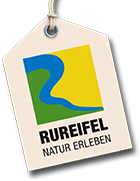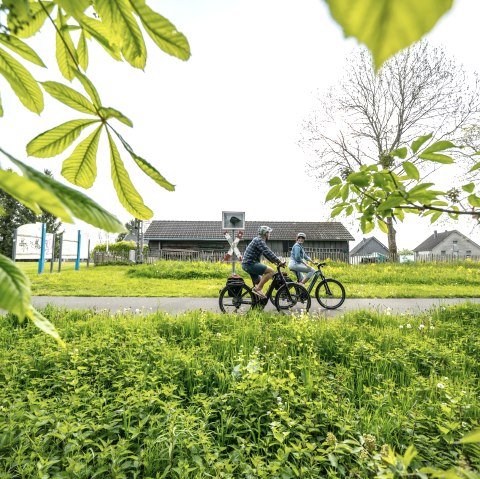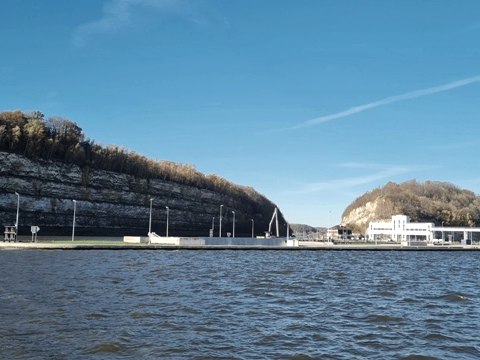Bildungsurlaub: Drei Länder, Zwei Räder, ein Fluss - unterwegs auf dem RurUfer-Radweg
from 695.00 € Jetzt anfragen
* The date with the period from 25.08. - 29.08.is fully booked *
The river Rur - the "Eifel-Rur" - rises in the Belgian high moorland area of the High Fens, flows picturesquely through the lakes and rocks of the Northern Eifel and takes its course in the flat Bördeland landscape through the Rhenish lignite mining area, which is characterized by agriculture and energy production. The Rur then flows across the Dutch border to Roermond. Here it finally flows into the Meuse with two estuaries. On the Rur-Ufer-Radweg, we follow the river for 180 kilometers by bike, mainly through the quiet and natural floodplain.
Botrange (B)-Heimbach: The High Fens, Monschau and the Rur lakes.
Heimbach: Eifel National Park and former "NS-Ordensburg" Vogelsang.
Heimbach-Jülich: Between nature conservation and open-cast mining.
Jülich-Dremmen: Research against climate change.
Dremmen-Roermond (NL)-Dalheim: Nature conservation across the border.
We pass through very different protected landscapes: The open moorland landscape of the High Fens Nature Park in Belgium, the Eifel National Park with its forests and the De Meinweg National Park in the Netherlands, which is characterized by heath, forest and moors. The course of a river offers countless themes. We will explore them in the places and landscapes we cycle through together for five days. We will encounter nature conservation in the large protected areas of the High Fens and the Eifel National Park. We will encounter the themes of war, peace and human rights when we visit the site of the Nazi Ordensburg Vogelsang, as it was called by the National Socialists. Today it is an international place of learning and a national park center. The National Socialists reshaped the Eifel landscape with the Vogelsang complex - even into the 21st century through its use as a NATO military training area during the Cold War.
The theme of rivers as lifelines is a constant theme throughout the week: rivers are sources of drinking water, habitats and usable areas and they know no boundaries. This makes their comprehensive protection necessary, but also complicated. There are contradictions that need to be negotiated. Industry and agriculture need a lot of water, the lignite industry pumps it out in huge quantities so that the open-cast mines don't go under. Dams hold back the water, but the salmon want to go upstream to the upper reaches. Due to these different conditions and requirements, cross-border, European solutions are needed.
The topic of remembering the events of the National Socialist era will also come up again and again. The battle for the Hürtgenwald raged right up to the Rur in 1944/45 and is no secret today, so as not to disrupt tourism, but rather an occasion for an open reappraisal of the past. Heinrich Böll often went for walks in this landscape and wrote: "In this landscape there were demonstrably the fewest Nazis and it was punished most severely by the German divisions". In view of racist attitudes today and in the face of climate change, the question arises again and again as to whether and what we want to remember.
The Rurtalbahn will accompany us on the section between Heimbach and Linnich. This can be used by arrangement.
Objective:
The participants:
- get to know approaches, experiences and perspectives of sustainable regional development
- get to know the prerequisites for civic engagement
- learn how nature conservation, tourism, agriculture and environmental protection can work together successfully in a region
- develop ways in which the findings can be transferred to other regions
Target group:
- The seminar is open to all employees.
*The seminar is recognized as educational leave for political further education in NRW, Rhineland-Palatinate, Thuringia and Berlin. The event is held in cooperation with the Bildungswerk der Heinrich Böll Stiftung Nordrhein-Westfalen e. V.








